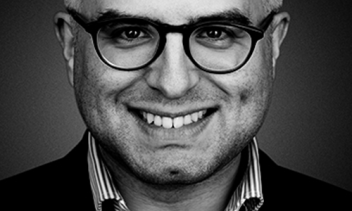We do not grow absolutely, chronologically. We grow sometimes in one dimension, and not in another; unevenly. We grow partially. We are relative. We are mature in one realm, childish in another. The past, present, and future mingle and pull us backward, forward, or fix us in the present. We are made up of layers, cells, constellations.
— Anaïs Nin
Thinking as a community about money and wealth is a fundamentally complex endeavor. As a symbol and psychological construct, albeit one societally constructed, money is a sort of specter, and it means both more and less than we make it out to mean. This is a personal question, specific in its commonality: what does money mean to me? And yet, it is also a communal or cultural question: what do we make out money to be for us? How do we communicate about money—about its presence and its lack—about what it says if you have some of it, none of it, much of it?
As a graduate student in clinical psychology, I find this meeting point—between self and society—both rich and challenging. Developing a stance of cultural competency is key to the psychologist in training, as clinicians can never know which psychological symptoms or maladies are influenced by the culture of the patient. Traditionally, the operational term has been this: cultural competency. But in recent years the field has pivoted towards a focus on a different term: cultural humility. The culturally humble clinician considers the impact that the patient’s culture might have on the patient’s psychological health, and yet the clinician does not overassume. The clinician remains open to and aware of the impact of culture, but also sees the patient as an individual, operating on their own terms.
Thinking about wealth then, we can speak about the ways that we make meaning of, about, and around wealth in our own lives, the societal factors that influence our meaning-making, and the interaction between the two, between the self and the society.
All in all, here are some psychological concepts that I’ve found to be helpful in parsing out the questions of wealth. I’m only a graduate student, and this is not a clinical setting, so I’d gently urge you not to take these words as a psychologist’s view on money, but rather as some favored thoughts by a close friend or distant Twitter follower. If you have any thoughts, comments, or suggestions for more terms that might be helpful, don’t hesitate to share. These are the ones that come to mind for me, and I can’t wait to hear yours. So let’s embark, together.
1. Hedonic Adaptation
Hedonic adaptation refers to our adapting to the terms of our life (think hedonism, as in pleasure). The economist Adam Smith, writing in 1759, put the dilemma this way:
In every permanent situation, where there is no expectation of change, the mind of every man, in a longer or shorter time, returns to its natural and usual state of tranquility. In prosperity, after a certain time, it falls back to that state; in adversity, after a certain time, it rises up to it.
… we tend to overestimate both how good and how bad situations in life might be.
We get used to life, and no matter how fast we run, we “seem to end up in the same place,” as the Red Queen says in Through the Looking Glass. There are different aspects to the research on this question, and different work-arounds that you might find (one interesting study argues for spending leisure money on experiences over possessions as a way out of hedonic adaptation!), but the news report remains the same: no matter how much we think that the next raise, larger house, or new car might make us happier, we ultimately tend to revert to our set point. Sonja Lyubomirsky, in her book The How of Happiness: A New Approach to Getting the Life You Want, does point out a nice undertone to this though:
I would argue that human beings are actually lucky to have the ability to adapt quickly to changing circumstances, as it’s extremely useful when bad things happen. Some studies of hedonic adaptation show, for instance, that we have a phenomenal ability to recover much of our happiness after a debilitating illness or accident.
Be that as it may, you may be better suited thinking and working on our own set point, and how we interpret the terms of our life, if you tend to find this principle occurring in your life.
2. Mimetic Desire
Mimetic desire refers to our tendency to want what we see others wanting. (Think mimes, imitation!) Championed by the French polymath philosopher with a lovely name, René Noël Théophile Girard, mimetics are a sort of neutral process that motivates much of our lives. There is nothing negative or positive per se about mimetics, as we can be satisfied by gaining the object of our desires according to mimetic theory; the issue is that our desires themselves are capricious and subject to the desires of our mimetic role models. For those of us in communities that idolize or idealize differing standards of success, our multivalent mimetic desires for character, scholarship, and material success may haunt us. On a deeper level, it may also lead us astray, as our host David Bashevkin put it:
Mimetic desire, as Peter Thiel remarks, can easily run amok and have us collectively wanting something that won’t even bring us personal satisfaction. It removes us, like the Mishnah in Avos states, from our world, from what we really want.
So when you think about what success looks like to you, consider also where your ideas for that success come from, what your role models for success might be. It might tell you something.
3. Affective Forecasting
Affective forecasting refers to the prediction of one’s future emotions, how we assume that we will feel in the future. When making a decision in life, we tend to have assumptions about how these decisions will impact our emotions: generally speaking, we have assumptions about whether our emotions will be positive or negative, the specific emotions that we will feel, the intensity of the emotions, and the duration of the emotions. However, we tend to overestimate both how good and how bad situations in life might be. We assume that we are more vulnerable to experiences than we are. This relates to the hedonic adaptation that we discussed above, as the adaptation to our set point has a lot to do with why we are less susceptible to emotional change than we sometimes think.
As in hedonic adaptation, our own assumptions about what will make us happy is often less the case than we might think, and we might be better served doing the work of working on ourselves, and investing in our own emotional wellbeing, and putting less faith in external circumstances influencing our own emotional wellbeing. This isn’t to underplay the importance of context, setting, or situation. All of that matters in our own emotional life—and we are all well served in building healthier homes, families, communities, and cultures—but we are also well served in building ourselves. Which is to say, there’s plenty of work to do, the day is short, so let’s get going.








